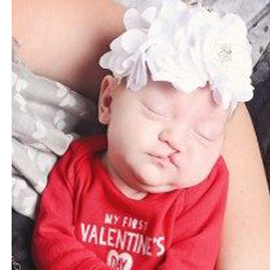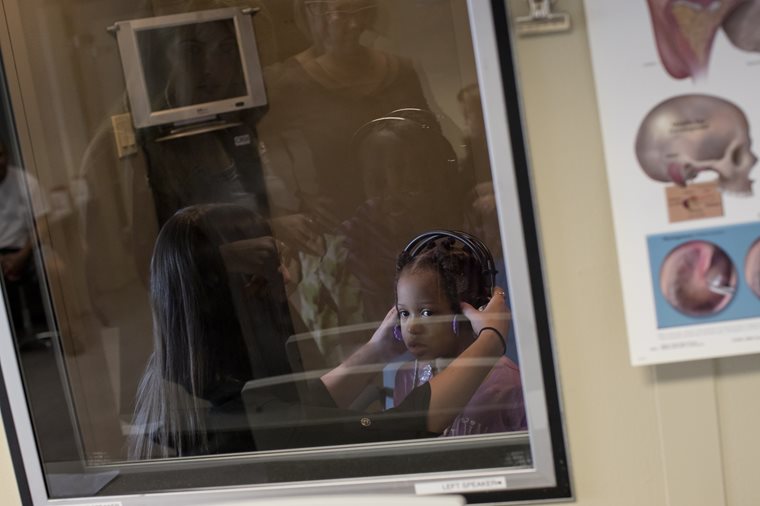Cleft Lip and Palate Related Hearing Problems
 According to the Centers for Disease Control and Prevention (CDC), each year in the United States, approximately 2,600 babies are born with a cleft palate and 4,400 babies are born with a cleft lip. The degree to which children are affected and the extent of the clefts and their impact on the child varies.
According to the Centers for Disease Control and Prevention (CDC), each year in the United States, approximately 2,600 babies are born with a cleft palate and 4,400 babies are born with a cleft lip. The degree to which children are affected and the extent of the clefts and their impact on the child varies.
Children born with a cleft lip alone are not normally at a greater risk of long-term deafness than the general population. However, children with a cleft palate or cleft lip and palate are likely to have longer-term difficulties with their hearing.
Having a cleft palate can affect both hearing and speech, and should be closely monitored throughout the child’s early years, as well as at five and 10 years old to ensure that any developing problems are dealt with appropriately.
If a child has a cleft palate, they should be regularly assessed for any hearing issues from a young age by an audiologist or ear nose and throat (ENT) specialist. However the type of hearing issues associated with cleft palate can often come and go, and a child can develop these issues again at a later age, so it’s important to watch out for this.
"Audiology does play an important - but sometimes overlooked - role in the management and treatment of children with cleft palates. Although most - but not all - hearing loss associated with a cleft palate is temporary, it can still have a significant impact on speech and language development," said Dr. Lindsay Bondurant, pediatric audiologist and director of the Pennsylvania Ear Institute. "If the hearing loss doesn't resolve quickly or completely, the negative impact on listening, language and learning can become long-term. An experienced pediatric audiologist is an essential member of the cleft-palate team in order to monitor hearing status and assist with treatment plans as needed."
Glue Ear (Otitis Media with Effusion, or “OME”) is a common condition in children with a cleft palate. This is thought to happen when the eustachian tube doesn’t function properly. The eustachian tube runs from the middle ear to the back of the nose and throat, and it works by equalizing air pressure between these two areas, sort of like what happens when you “pop” your ears.
If it doesn’t work properly, there may be a difference in air pressure between the middle ear and the nose, and the lining of the middle ear produces a liquid which can thicken and make it hard for children to hear, as well as making them prone to earaches. This can make it especially difficult to hear quieter sounds or to hear something when there is a lot of background noise.
Glue ear is often temporary and can get better on its own, but sometimes treatment is needed. Many children not born with a cleft develop glue ear, and for many of them, doing nothing is a valid option. A child born with a cleft palate is much less likely to grow out of glue ear quickly. Speech and language development, learning and behavior can all be affected if hearing is impaired over a longer period of time, so in the majority of cases something needs to be done.

One option is pressure equalization (PE) tubes, which are tiny plastic tubes placed in the eardrum. They aren’t noticeable by others and can help stop earaches. Sometimes this is done at the same time as cleft palate repair surgery. PE tubes often fall out as the eardrum heals (after around six months), and if the glue ear comes back, another procedure to replace the PE tubes may be necessary.
Hearing aids are also an option. They come in several different kinds, and the most suitable one for your child will be recommended by an audiologist or ENT specialist. These are a more long-term solution to hearing issues.
In the majority of cases, hearing problems caused by a cleft palate clear up by around six to eight years old, but occasionally they can lead to longer-term hearing issues.
For more information or to make an appointment for your child, call the Pennsylvania Ear Institute at 215.780.3180.